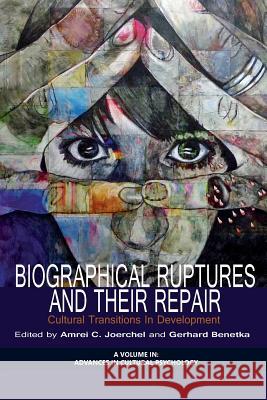Biographical Ruptures and Their Repair: Cultural Transitions in Development » książka
Biographical Ruptures and Their Repair: Cultural Transitions in Development
ISBN-13: 9781623968380 / Angielski / Miękka / 2014 / 292 str.
Biographical Ruptures and Their Repair: Cultural Transitions in Development
ISBN-13: 9781623968380 / Angielski / Miękka / 2014 / 292 str.
(netto: 220,50 VAT: 5%)
Najniższa cena z 30 dni: 228,69
ok. 30 dni roboczych.
Darmowa dostawa!
A volume in Advances in Cultural Psychology Series Editor: Jaan Valsiner, Aalborg University Biographical ruptures and their repairs: Cultural transitions in development represents the efforts of bridging theoretical, methodological, and practice oriented issues revolving around the notion of biographical ruptures and their repairs. The aim is to bring novel understandings from cultural psychological perspectives to the debate of what it means to be a developing human being in an ever changing world. Contrary to mainstream psychology ruptures and repairs are here not necessarily understood as a personal experience, which must be overcome through various coping strategies. Rather, ruptures are understood as experiences, which necessarily emerge out of the complex interrelatedness of intra-psychological, inter-personal, and societal processes. Moving along these different levels of analysis, each of the 13 chapters of this book contributes to the general cultural psychological understanding of ruptures from their own particular standpoint. The notion of ruptures and their repairs are discussed from such differing standpoints such as classical developmental psychological theories and challenges to such developmental approaches. They are discussed in relation to racial interpellations using the documentary method and social representations theory. On the object level ruptures are pointed out within popular music videos and from a Ganzheitspsychological approach and others. The current book thus does not only represent a conglomerate of various theoretical, methodological, or practice oriented approaches to ruptures and their repairs, each adding with their own expertise to a better understand of the phenomenon in its whole. It also demonstrated a lively debate between leading specialists and practitioners from different disciplines and countries. Theoretical and methodological issues, as well as ethical and moral ones, are each discussed from their own cultural psychological viewpoint. This book will interest practitioners, scientists and students or anyone who is interested in biographical rupture and their repairs from a cultural psychological, developmental, social psychological or psychotherapeutic viewpoint.











